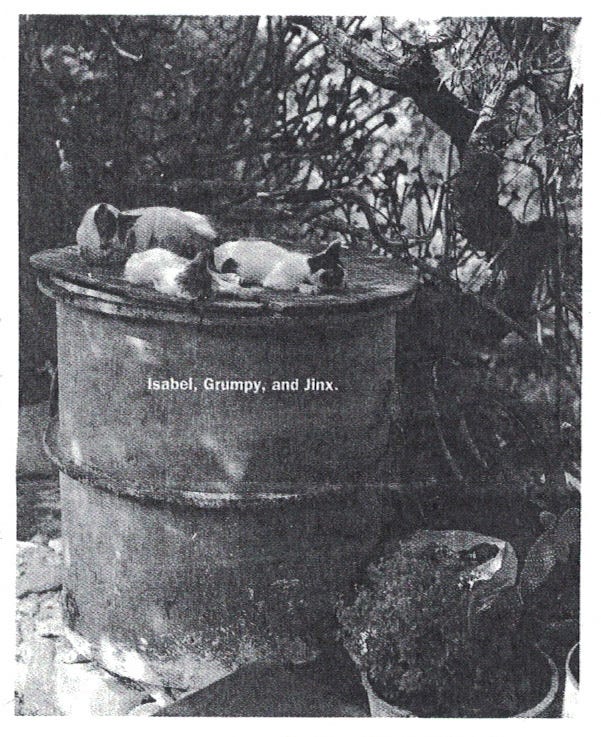The 'Days Between Stations' columns, Interview magazine 1992-2008: How to claw your way to the top in the record biz
February 1994
“Ask Breaker,” the president of Dead Calm Records seemed to reply to every question. “It’s his job to know what’s next.” No wonder almost everyone at the company was afraid of Breaker Raskolnikov.
Partly it was his age: just twenty-one. That’s what he said; nobody believed him exactly. His knowledge of music was too vast, his cynicism too lightly borne, his sense of character judgment too acute. As usual, though, he’d sideswiped the doubters by at first pretending to be older and then seemingly confiding the truth to you and you alone, thus turning potential enemies into at least momentary intimates.
Partly it was his appearance. His hair seemed to change every week, and so did his clothes and the whole float of his body as Breaker materialized and dematerialized around the offices. It wasn’t that he ever presented any kind of look—just the opposite. With the giddy energy of a whole so cool it left the parts behind, Breaker radiated not fashion, not style, but clothes and body as fields of fun. In other words, he made everyone else, even those who knew exactly how you were supposed to look at any given cultural intersection, feel square and old, as if the world was leaving them behind.
“I think we ought to go after the Jon Spencer Blues Explosion,” Curt Gibson, an up-and-comer in A & R, said at the weekly news ’n’ views meeting. “They’re pure cutting edge.” The smarter people at the table were already nervous; that was the third time the phrase had been used in half an hour, and Breaker’s face had grown a shade darker each time the words hit the air.
“I’m supposed to know ‘what’s next, what’s new,'” Breaker said grinning (the president grimacing), as if the very idea were ludicrous. “I don’t; you don’t. What I do know, what I think about, is what isn’t next, and what isn’t next is a phrase like ‘cutting edge.’ If you use words that sound stale before they get out of your mouth, you may have the future of humanity signed to a ten-year deal, and you won’t be able to tell anyone about it. And you won’t be able to get the future of humanity to speak for herself, because she’ll probably want to call a song ‘Cutting Edge,’ and you won’t know enough to stop her. We sign Jon Spencer, we call his album Cutting Edge, we just use the fucking phrase in a press release, and everyone will know, will feel it in their bones, that Jon Spencer has sold out and that we’re in the business of buying off what we don’t understand. That’s great if your idea of the future is the next Stone Temple Pilots. It ain’t so great if your idea of a reason to get out of bed tomorrow, never mind the day after—your idea of something we can sell to people as something they can use to get out of bed—is the next Pearl Jam.”
Spike Spiker (not his real name—he hadn’t used his real name for so long he occasionally forgot it) didn’t understand a thing Breaker was saying. That made him mad, made him want to take Breaker on, but it also made him remember the last time he’d tried to show the twerp up for the phony he had to be. “How come they call you Breaker?” Spiker had asked him a few months ago, back when everyone was trying to figure out who Breaker was sleeping with. “Hey, it’s the name my parents gave me,” Breaker had said. “They were break dancers.” Spiker had gone for the kill. “You’re twenty-one, man. There wasn’t any break dancing in 1972.” “Really?” Breaker had said, all wide-eyed and gosh-wow, the knife invisible as always. “Where’d you grow up?”
Spiker pressed on anyway. “Pearl Jam, right. A good reason to get out of bed yesterday. Eddie Vedder is the new Meat Loaf, the band is just Aerosmith on Romilar. Same with Nirvana. I mean, even Kurt Cobain himself said they were just Cheap Trick and the Knack for people too young to catch that shit the first time around or too dumb to remember they had, and…” Spiker did have a tendency to run on.
“Well,” Breaker said, “you’ve got a point, Morty.” (Spiker panicked, and for a moment he blanked: Morty? My god, was that it? Morty?) “I guess the Knack did say they were just the new Dave Clark Five, didn’t they? And Get the Knack and Nevermind were both number one, and I’m sure ‘My Sharona’ somehow crystallized everything that was special about your generation the way ‘Smells like Teen Spirit’ seemed to do for mine, and, well, come to think of it, I never realized it before, but it’s so obvious! It’s that sense of drama, of everything at stake, that makes Nirvana the new Knack, don’t you think?”
Spiker glared at Breaker, but Breaker seemed bored with his own sarcasm. “Look,” Breaker said, “it’s easier to sell hibernators than anything else.” A collective “What?” went around the table: “Hibernators?” “The real Meat Loaf, if there is such a thing,” Breaker said. “Bat Out of Hell in ’77, gotcha, Bat Out of Hell II last year; freeze him, thaw him out again in 2010, no problem; and what are you selling? You’re selling reassurance that nothing has changed and nothing ever will.”
“So why’s Eddie Vedder any different? He’s the same goddamn tortured artist Western civilization’s been peddling since the Renaissance,” Spiker said, and he almost choked on his own words; that was probably the most thoughtful thing he’d said since college. That gave him confidence: “The newest new artist of 1993,” he pronounced, “was Liz Phair: ‘I’ll fuck you till your dick is blue.'” Spiker was drifting away with the line, nearly drooling. “Nobody’s ever heard a woman talk like that before.”
Breaker flashed him that “Where’d you grow up?” look. “Liz Phair,” he said. “She’s so new, she’s so unexpected, that everybody quotes the same lines, says the same things, uses her to rebuke every other woman singer.” He looked very pissed. “You wouldn’t know ‘new’ if it were a disease and you caught it,” he said. “What’s new isn’t easy to use. You don’t know what it is, really. It makes you feel alive and stupid at the same time. Eddie Vedder, yep, he’s Mr. Torture, Mr. Misery; he’s so corny you want to put butter and salt on him. But you know what? He’s new not because he’s doing something that’s never been done before, but because it’s so absolutely clear to so many people that he’s doing something he’s never done before. And he doesn’t know how it’s going to turn out—he doesn’t know how the song is going to end. And do you know how that translates? This way: he’s new because people recognize he’s someone they haven’t seen before and might not see again. It’s a little scary, you understand? Liz Phair you’ve seen all your life, in every commercial on TV. She leaves, she’ll still be there. But you get the feeling Eddie Vedder could disappear at any time, and if he did, he’d just be really gone.”
“Breaker,” said the president, “how old are you, really?”
“Twenty-two,” Breaker said.
Originally published in Interview Magazine, February 1994




Best line: "It makes you feel alive and stupid at the same time."
My wife will love what Breaker said about Eddie Vedder.